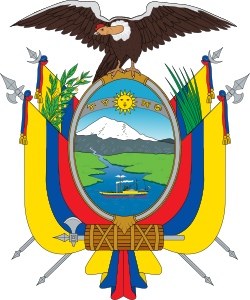Background
President Rafael Correa had initially stated he would resign if the constitution were rejected, but later stated he would finish his term.
A Cedatos/Gallup poll from May 2008 saw 41% in favour of the constitution draft, 31% against, and 28% not sure. [3] Another Cedatos/Gallup poll from June 2008 showed 37% support. [4]
Provisions include the right to healthcare, food, social security, and education as well as an emphasis on Latin American integration. The more controversial proposals include allowing a second four-year term for the president and legalising civil unions. [5]
This page is based on this
Wikipedia article Text is available under the
CC BY-SA 4.0 license; additional terms may apply.
Images, videos and audio are available under their respective licenses.

